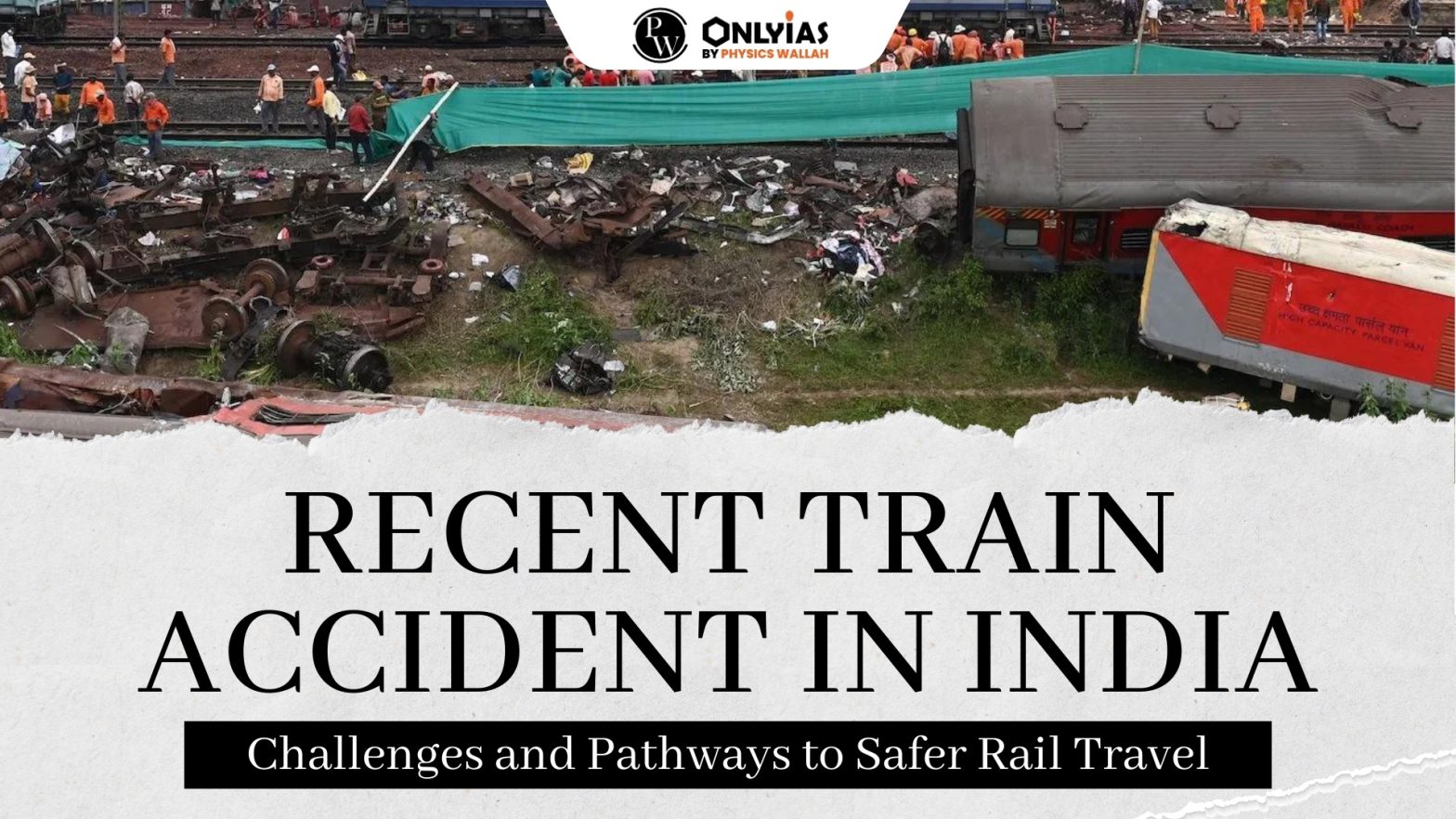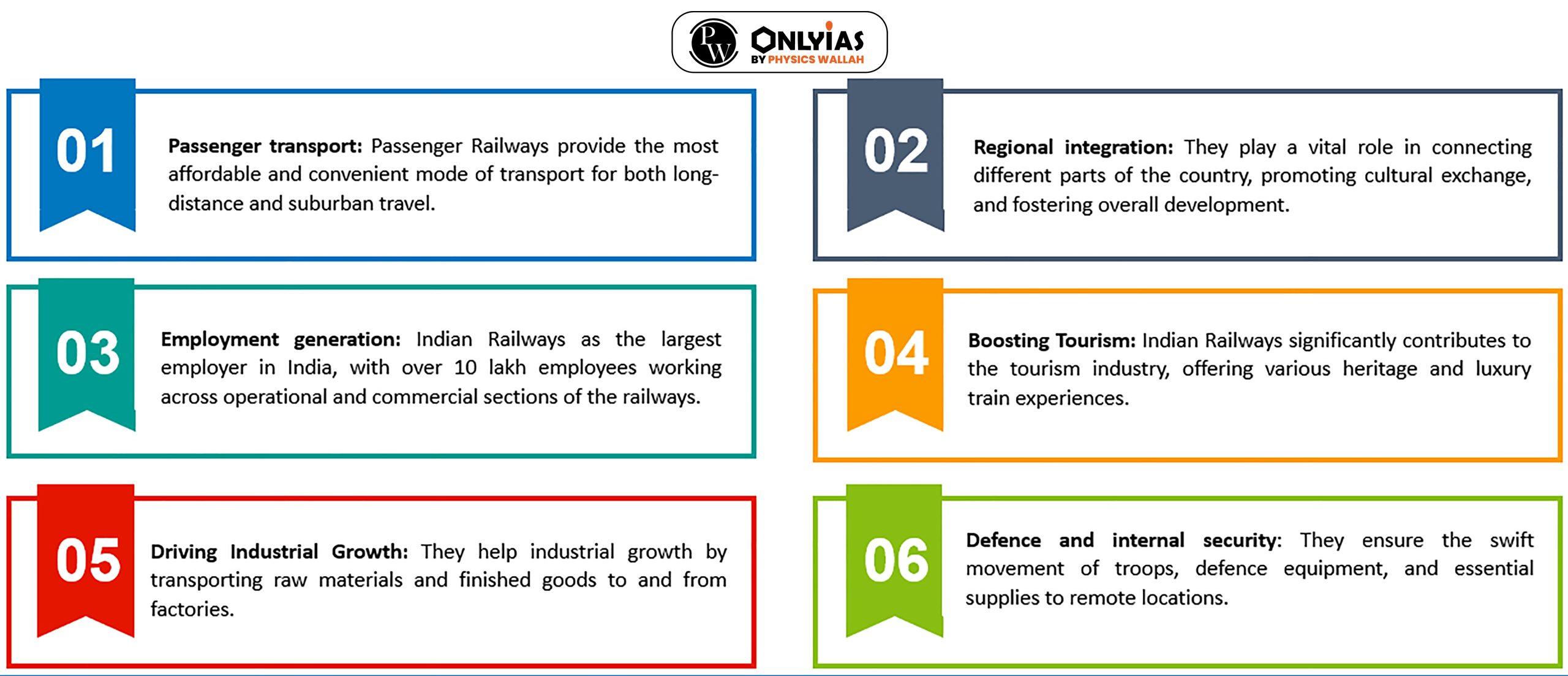Context: In a recent Train Accident in India -two trains collided on the Howrah-Chennai line in Vizianagaram district of Andhra Pradesh on Sunday evening.

Context: In a recent Train Accident in India -two trains collided on the Howrah-Chennai line in Vizianagaram district of Andhra Pradesh on Sunday evening.
Update on Train Accident

| Committee | Recommendation |
| Kakodkar Committee (2012) |
|
| Bibek Debroy Committee (2014) |
|
| Vinod Rai Committee (2015) |
|
The primary causes include human error, track defects, signalling failures, and accidents at unmanned level crossings.
The government is taking measures like introducing the KAVACH system, Project Mission Raftar, and creating the Rashtriya Rail Sanraksha Kosh fund to enhance railway safety.
Committees have suggested creating a Railway Safety Authority, improving human resource development, and separating the railway budget from the general budget, among other measures.
Key steps include fostering a safety culture, adopting advanced technologies, strengthening maintenance practices, and providing sufficient funding for safety initiatives.
The report highlighted shortcomings in railway safety, such as inspection shortfalls, inadequate fund utilisation, and staffing issues, shedding light on areas that need improvement.
<div class="new-fform">
</div>